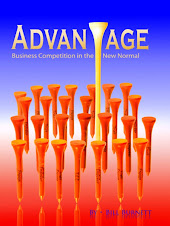
Two scientists set out to look into the machinery for making proteins, the ribosomes, and to see if they are the same in different living creatures. They designed an experiment to take ribosomes from bacteria, insert messenger RNA from peas, and see if they would grow pea proteins or bacteria proteins. Had the experiment worked, they would have been the first to demonstrate the uniformity of life.
But it didn’t work.
You can easily imagine someone coming along later to attempt to do the same thing getting the response “We already tried that and it didn’t work!” Chris Galvin, the former CEO of Motorola, gave a talk this week at the Business Innovation Conference in which he described how he and his father would deal with this kind of question. If someone came to him with an idea that had already been tried, the Motorola CEO wouldn’t say “we already tried that.” Instead, he would encourage the innovator to pursue the idea and give some guidance where to look first. If the reason the idea didn’t work the first time was valid, the innovator would see the problem fairly soon, report the issue back to Galvin, and then go off to pursue some other idea. If you just shoot someone down with “we already tried that,” then you make it very difficult for that person to move off that idea and onto a new one. You also diminish their level of engagement.
In the case of the ribosomes RNA experiment, eventually someone did come along and show the uniformity of life. The reason the original experiment failed was due to the amateurish contribution of the lab assistant. The bacteria ribosomes he brought to the experiment were some he’d developed in a previous experiment and had stored for some time in a lab refrigerator. While there, they’d become contaminated which caused the experiment to fail. Who was this lab assistant. It was Richard Feynman, the renown physicist and Nobel Laureate.
Just because something has been tried before, doesn’t mean there’s no value in trying again. And just because it was tried by someone who’s incredibly smart, doesn’t mean an error didn’t occur.






1 comment:
Agreed. Sometimes people are intimidated to question very bright people or think it’s not conceivable someone with excellent credentials could error or not have the proper methodology.
The attitude Robert Galvin’s father took with looking at the idea again reminds me of effective brainstorming. If you remain positive and remain open to possibilities, you’ll increase the possibilities of finding a solution or discovering new insight with an issue.
Post a Comment